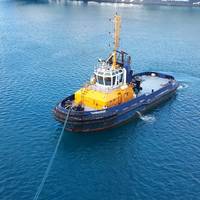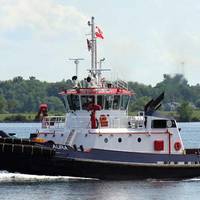Gray Water & Bilge Water: Taking Steps to Clean Up the Ocean Environment

The fact that improperly-treated gray water pollution is still being dumped off ships in a so-called modern and highly-regulated shipping industry is hypocritical at best. Graywater – which comes from ship accommodation areas (shower/sink), laundry, galley and food pulper – can contain classical pollutants such as nonylphenols, metals, nutrients, surfactants, pathogens, oil, grease, detergent and soap residue. Graywater is sometimes mixed with sewage, depending on the ship design. Graywater can have varying levels of harmful contaminants.
Keep it Clean & Green

When dealing with oil and other hazardous contaminants on vessels and in marine facilities, there are some common misconceptions about the way hydrocarbons biodegrade. “The words biodegrade and bioremediate are not interchangeable,” said Jay H. Murland, CEO of EnviroLogic Biobased Technologies Inc. who manufacturer a line of over 30 EPA-approved bioremediation products. To explain further, let’s look at the difference between the processes of bioremediation, bioaugmentation and encapsulation. • Bioremediation occurs naturally all over the earth.
Bioremediation Goes Mainstream

A reliable solution for response and prevention that can save money, time and regulatory aggravation is here. The threat of oil pollution has long been a problem in the shipping community. You don’t have to look too far to review the myriad of oil spills that have plagued the industry. The Exxon Valdez spill that occurred 25 years ago has recently come to the forefront once again as there is evidence that the ramifications of the spill are still being felt in the fragile eco-system of several Alaska beaches.
Bioremediation Products Demonstrated to USCG
The U.S. Coast Guard recently received a demonstration of two Spillaway brand bio-remediation products, which contain live bacteria or spores that "eat" oil and fuel. Spillaway products are distributed by MEM International. Bio-remediation uses naturally occurring microorganisms to degrade harmful chemicals into non-toxic compounds. Microorganisms break down a wide variety of organic compounds that are found in nature to obtain energy for their growth. In particular, these organisms will break down petroleum hydrocarbons and transform them into carbon dioxide and water. Bio-remediation harnesses this natural process by promoting the growth of microorganisms that can degrade contaminants and convert them into non-toxic by-products. The bio-remediation process is natural.





